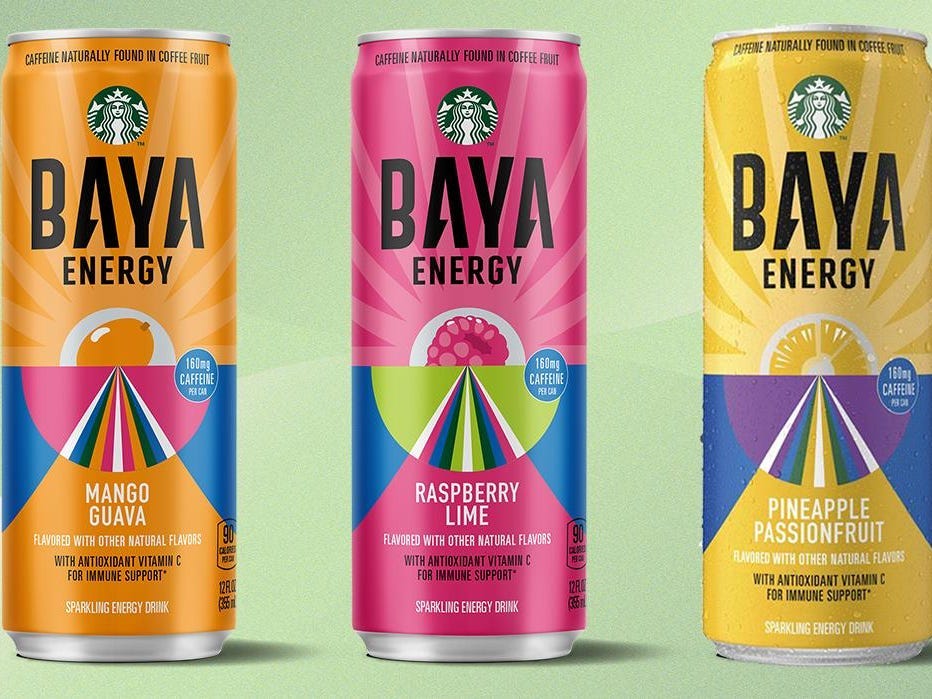
- Starbucks has launched Starbucks BAYA Energy – the coffee chain's first-ever line of energy drinks.
- The $2.89 cans are available at retail stores and will be rolled out at Starbucks US stores from March.
- The drinks come in three flavors: mango guava, raspberry lime, and pineapple passionfruit.
Starbucks is making and selling energy drinks for the first-ever time.
The beverages come in cans so that you can drink them on-the-go and are available at grocery and convenience stores at a suggested retail price of $2.89.
They'll be rolled out at Starbucks US stores from March 1, the coffee chain announced Tuesday.
The drinks, called Starbucks BAYA Energy, come in three flavors: mango guava, raspberry lime, and pineapple passionfruit. Each 12-ounce can has 90 calories and 160 mg of caffeine.
In a press release, Starbucks said the drinks are "crafted from caffeine naturally found in coffee fruit as well as antioxidant vitamin C for immune support to give consumers a boost of feel-good energy."
"Over the years, we've continued to identify new and exciting ways to expand our ready-to-drink portfolio and saw an opportunity to complement our existing coffee beverage lineup with Starbucks BAYA Energy, the brand's first beverage to launch in the energy category," Chanda Beppu, vice president of channel development Americas at Starbucks, said in the press release.
Starbucks said that it was also rolling out other ready-to-drink beverages, including some oat milk-based ones, after the chain's successful launch of the dairy alternative earlier this year.
Starbucks is also releasing a 72-ounce carton of its Cold Brew at a suggested retail price of $15.
The drinks were developed by Starbucks and PepsiCo as part of a ready-to-drink beverages partnership, the North American Coffee Partnership. The companies say that the partnership makes more than $2.8 billion in annual retail sales.